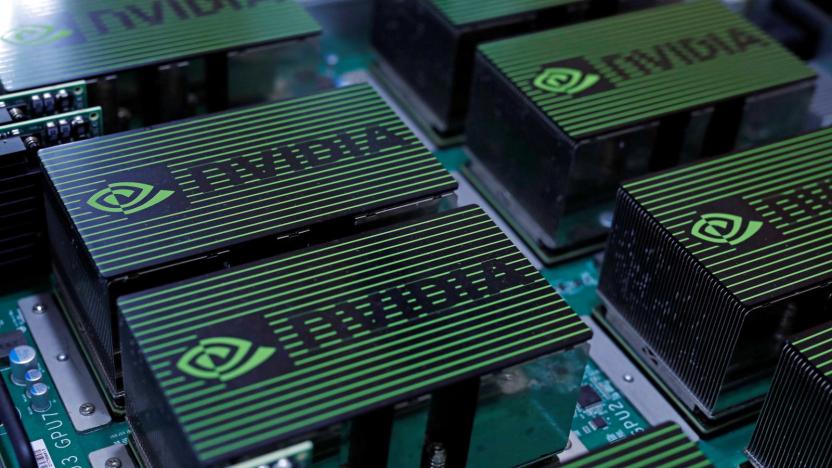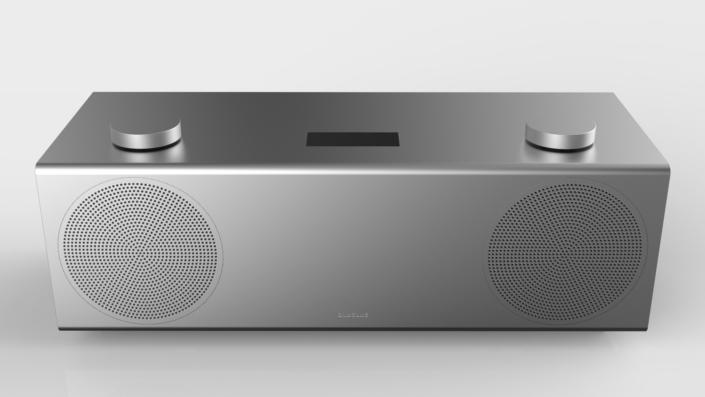32bit
Latest

NVIDIA is gearing up to end 32-bit OS support
The time of the 32-bit OS continues its slow descent into obsolescence. NVIDIA announced that Version 390 of its graphics card driver would be the last to support 32-bit Windows, Linux and FreeBSD systems.

Samsung's stylish speakers upgrade your audio to 32-bit
Samsung's latest speakers aren't just classy AV units that complement your furniture, they also deliver 32-bit audio. The company is promising listeners a new level of clarity thanks to its new Ultra High Quality (UHQ) audio tech, which upscales both existing 8-bit and 24-bit sound to output at 32-bit. Targeting audiophiles who might be able to tell the difference, Samsung's 32-bit audio should deliver sound closer to the original recording. The new tech works with both wireless and wired speakers, and Samsung's upcoming H7 Wireless Speaker and MS750 Soundbar are both compatible. Even if you can't hear the difference in audio quality, the speakers are pretty darn... pretty.

SteelSeries announces Sensei Major League Gaming edition, keeps palms eager until August
For most of us, the humble mouse is but a tool for effective computer navigation, for gamers though, it's a matter of life and (virtual) death. SteelSeries knows this, and hopes its new Sensei Major League Gaming edition mouse will keep a few more of its faithful out of the MASH. It looks like much of the credentials of the original Sensei have been kept intact, the same 10.8-megapixel sensor, the 150 inches per second movement detection, 32-bit ARM processor, LCD display and so on. What's new then? For the main part, the CPI, which can now go from one to 8,200, or all the way to 16,400 if you use the double CPI feature. You'll have to wait until August to get your hand on it, with pre-orders (but no price as yet) set to open at the MLG Championship next week.

DICE to require 64-bit OS for some 2013 games, that Windows ME box in the den isn't cutting it
We're entering a world of mainstream 64-bit computing -- whether we like it or not. Just weeks after Adobe started requiring 64-bit Macs for CS6, DICE's Rendering Architect Johan Andersson has warned that some of his company's 2013 games using the Frostbite engine will need the extra bits as a matter of course. In other words, it won't matter if you have a quad Core i7 gaming PC of death should the software be inadequate; if you're still running a 32-bit copy of Windows 7 come the new year, you won't be playing. The developer points to memory as the main culprit, as going 64-bit guarantees full access to 4GB or more of RAM as well as better virtual addressing. Andersson sees it as a prime opportunity to upgrade to Windows 8, although 64-bit Vista and 7 (and presumably OS X, if and when Mac versions exist) will be dandy. Just be prepared to upgrade that Windows XP PC a lot sooner than Microsoft's 2014 support cutoff if you're planning to run the next Battlefield or Mirror's Edge.

SteelSeries Sensei gaming mouse goes up for pre-order, obeys your macro come October
Competitive gaming scored itself a new peripheral vying for the top spot back in August, when SteelSeries unveiled its ambidextrous Sensei mouse. If you'll recall, the Sensei tracks up to 150-inches per second with its 10.8 megapixel sensor, and uses a 32-bit ARM processor to calculate it all without bogging down your rig. Making things sweeter, a trio of illuminated sections can be set to differing hues befitting your mood, and an LCD planted on the Sensei's underside will let you change some settings without a computer. If you've been dying to get your FPS-loving mitts on this $90 input device, it's now officially up for pre-order from the company's website and due to hit doorsteps during the first week of October. As usual, the full PR is located just past the break.

SteelSeries Sensei mouse points at the moon, we concentrate on its finger
It's been more than two years since SteelSeries unveiled its Xai and Kinzu gaming mice, but the peripheral maker has now returned with a brand new sword in hand -- the sleek and presumably sage Sensei. The device, unveiled yesterday, is powered by a 32-bit ARM processor that can digest images at up to 12,000 frames per second and rocks up to 5,700 CPI, with a Double CPI option that extends to 11,400 DCPI, for users gaming across multiple screens. The ambidextrous controller also comes outfitted in a metal coating that won't slip from your hands and connects to computers via a gold-plated USB. Best of all, PC gamers can use SteelSeries' Engine software to customize their experience even further, with pre-set configurations and user profiles. The Sensei is slated for release next month, when it will retail for $90 (or €90). Click past the break for more details in the full press release.

Windows still in 32-bit post-Vista
Calm down, first-gen Core Duo owners -- the rumors aren't true. Microsoft made some waves earlier today when Bill Laing, one of the general managers of the Windows Server division, was quoted at WinHEC saying that "Windows Server 2008 is the last 32-bit operating system (for desktops and servers) that we'll produce." While many took that "desktops and servers" part to include non-server OSes and assumed Vista was Microsoft's last 32-bit OS, Microsoft has since clarified the announcement, saying that while the future of Windows Server is indeed 64-bit only after 2008, no decision has been made about client versions of Windows, which is what most of us run. Whew. Although we've got to say we didn't really understand all the fuss -- if the next version of Windows takes as long to ship as Vista did, there aren't going to be too many 32-bit machines left anyway.[Via Slashdot]





